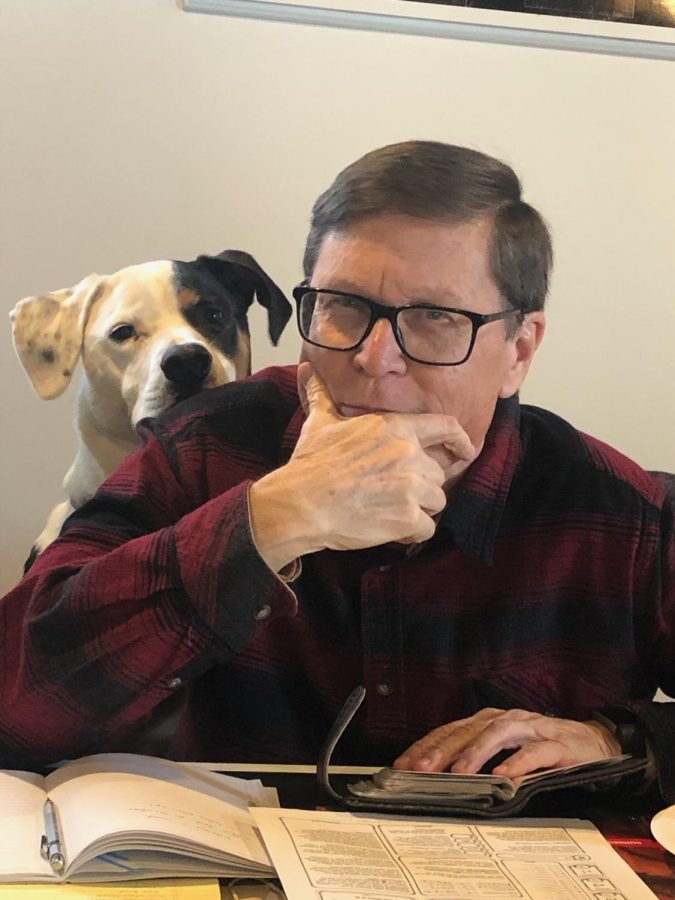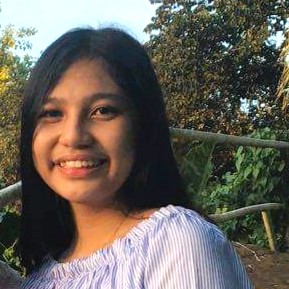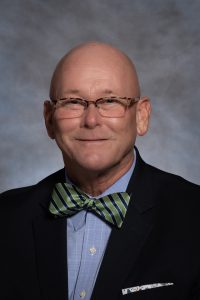Life Goes On For Larry Starzec
May 9, 2023
Prior to arriving at the College of Lake County (CLC), Larry Starzec graduated from Northern Illinois University with a Bachelor of Arts degree in Philosophy. He attended a year of graduate school at the University of Georgia with a focus in philosophy but stopped attending as he had gotten a job in banking. He stayed there for over 20 years, where he became a vice president at two Chicago banks. During that time, he was interested in writing and took part-time creative courses at CLC while he worked in downtown Chicago. He eventually received a Master of Fine Arts in Fiction from Warren Wilson College in 1990.
“After I received my MFA in 1990, I began teaching part-time at CLC in January 1991 while still working full-time at a Chicago bank.” Starzec explained. “I came on board full-time in August 1997.”
During his first year of teaching at the college, Starzec only taught one creative writing course. Four years later, in 1995, he left his banking career and decided to pursue teaching. He began to teach a number of different classes at CLC and at other colleges, such as Creative Writing I and II, Composition I and II, Technical Composition, Critical Thinking, and World Literature.
“I even stepped in and taught an Introduction to Logic course when a philosophy instructor had to take a medical leave one semester.” Starzec also shared. “I served one year as the Interim Chairperson of the Technical Communications Certificate Program at CLC.” He even added that when he was teaching as an adjunct professor, he also had some classes at McHenry County College, Barat College of Lake Forest, Harper College, Columbia College of Missouri, and served as a field faculty advisor for Vermont College’s Graduate Program in Writing and Literature.
Starzec incorporated mindfulness as a focus when it came to teaching composition, as he had an interest in meditation that stemmed back to his own college days. He practiced it informally on his own. “Some time ago—over twenty years ago—I visited my brother and his wife in New York. Both of them were professors of psychology. He stated this as he went on. ‘My brother was on the faculty of the State University of New York at Cortland. They were both very much into mindfulness meditation. In fact, my sister-in-law had done her PhD dissertation on the subject. We talked about the subject, and they directed me to sources that helped me delve into the subject more seriously.”
After returning from that particular visit, Starzec applied to develop a themed composition course under an East Asian Studies Grant, which he was awarded. Over the next year, he not only expanded the course but also began to teach it for more than 10 years.
When it comes to putting it into his own personal life, Starzec shared that the concept of mindfulness helped him in his life because it helped him be “present” for students and in his other relationships as well. “By present, I mean being focused and in the moment to deal with what is in front of me without letting my mind wander to other areas that can take me out of the moment. It helped me to work with intention and acceptance,” he explained, before he also shared that a student once described him as “one of the calmest teachers” that they have ever encountered.
In addition to being a professor, Starzec also enjoys music, both as a listener and as a performer. He is a self-taught guitar player and claims that “he didn’t have a very good singing voice.” Starzec also added that about 5 years ago, he decided to take clarinet lessons and get some formal training in music, which he enjoyed immensely, as he also began to take jazz lessons about 3 years ago and is just about to get into improvising. “I think all the arts complement one another.” He commented not long after. “I’ve got a long way to go with learning my instrument, but it’s another activity for which I find myself able to stay in the moment and focus, which is always good practice.” Starzec also mentioned that he will continue with lessons and be a part of the concert band at CLC, as it is his intention to be.
On the topic of his retirement, Starzec said that he will focus on his creativity as he has begun to sort through his drafts and notes of his writing projects that he wants to dedicate more of his time to. He also intends to return to his philosophic roots and to reread some of the philosophers from his school days and to study more of its contemporaries because of his interest in the big questions of philosophy. Additionally, he not only wants to spend time on music, but to also get back to painting as well and plans to take art classes with his wife. Starzec described retirement as “an opportunity an opportunity to get back to things I loved doing as student before work took some of my attention away from those things.”
As for traveling, Starzec answered that “I have no immediate plans” and he will have to talk about it more with his spouse once he is done working since that specific activity is dependent on their health and the worldwide situation is in of now since neither of them are enthusiastic about crowded airports. “We’ll have to see” he added.
On the other hand, Starzec is more focused and dedicated to grading end of the semester papers for the time-being. But he has also expressed that he does have a couple of stories in rough drafts that he wants to work on such as a novel that he plans on continuing to polish and that he looks forward to the time he will spend it on now. “I’m not lacking in writing projects.” He replied. “I have notebooks full of ideas, and in various draft stages. I work in all three genres – fiction, poetry and creative nonfiction.”
As someone who spent a great time and energy at the College of Lake County, Starzec mentioned that one of the biggest changes he has seen is the rapid technological advancement as when he started, word processing was just going after decades of using typewriters. In comparison to today, he described that the technology he used is ancient and that those machines are antiques. He also acknowledged that he has noticed that there is a more focus on career certification around the college.
“From a practical standpoint, that’s good, but it also closes doors to being open to other areas of study.” He disclosed before going on. “There’s also the injection of political agendas into education at colleges all the way down to grade schools much more so than when I started. This has caused some destabilization as well as antagonism.”
Starzec also emphasized that he has observed that nowadays, students have so much more distractions. “I can’t tell you how many students I pass in the halls who are face down looking at their phones. Getting students to be in the moment and present is a challenge” he explains.
In a similar topic of the challenges that both students and teachers are now facing, Starzec reasoned that technology has been both a saver of time and effort and a major distraction. “I can’t tell you how nice it is to begin a class with a five-minute breathing meditation. All phones turned off and put away.” He recalled. “In the mindfulness class we began each session that way and it really made a difference in starting each class session with intentionality.”
He also remarked that the cost of higher education is also one of the adversities that students are pressed with. “The pressure students have in terms of having to work or go into debt while in school is enormous.” At the same time, he has also suggested that teachers need to be open to new and different teaching methods as well as being conversant with technology unlike anything in the past.
Starzec also proceeded to share about his experiences in the aforementioned formats that have emerged since the event of the COVID-19 pandemic. He developed and taught online classes that would eventually become popular. “The semester the pandemic hit, I was teaching all online courses. So, for me and my students, the pandemic made no difference for the courses I was teaching. It was business as usual, and we moved smoothly forward.” He began before he shared that he missed being on campus and having dialogue with my colleagues. “Having Zoom appointments with students was okay, but not my preferred way of meeting.”
Reflecting on his past experiences, Starzec advises that one should deal with the ups and downs as they occur and not spend too much time worrying about the future that has yet to happen. He also reminds us that one should control what they can control and ask for help when needed because there will be problems and solutions. He encourages that one to stay present and in balance and to do the good that’s in front of them. “Get involved in other college activities.” He offered. “It took me a few years to get involved with some of the committees and commissions that I ended up working on, but when I did, I really appreciated it and how dedicated other faculty and staff were. It was very heartening.”








